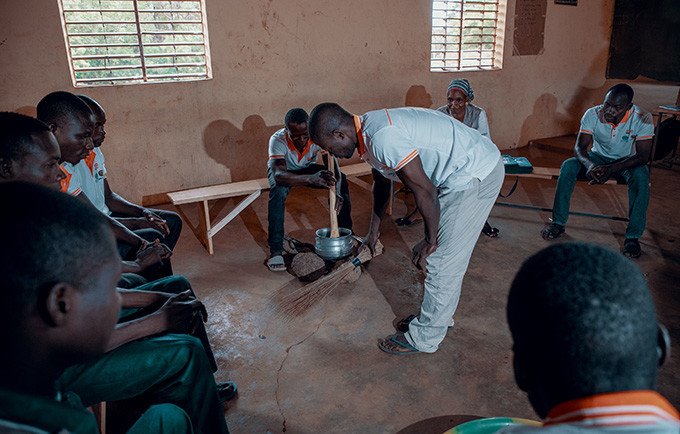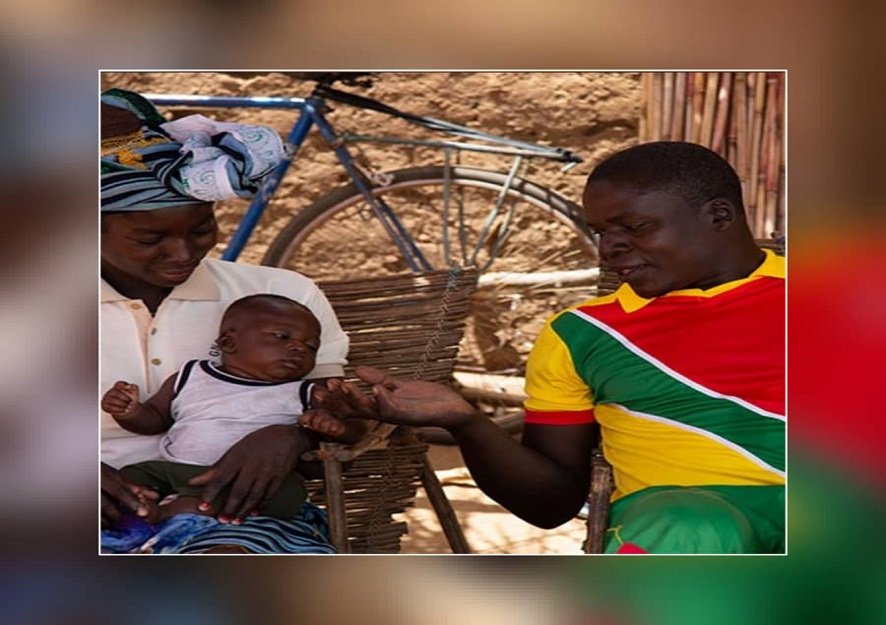There has always been a lingering myth-conception in marriages about the expectations of husband and wife being widely different. Egoism cropping from varying backgrounds and views has effected several arguments at homes, and which had in turn deterred couples to reach a compromise in some instance.
American soul singer, James Brown, explicitly said “this is a man’s world, but it would be nothing without a woman.” It is undoubtably true that a large number of men have acclaimed positions on masculinity and have a great contempt with being emasculated. However, feminists across the globe are already making a discourse of contention against the overview of wives saddled with just responsibilities of babysitting at home and doing house chores.
In a bid resolve this rocky issue and promote peace in all homes birthed the School for Husbands, which was instituted in Mamboué, in the Houndé commune of western Burkina Faso.
Once a week, about 15 married men do meet at the school or club for husbands to discuss family life, a meeting being guided by a facilitator. The initiative is Financed by the International Development Association through the Sahel Women’s Empowerment and Demographics Project (SWEDD), and implemented with technical support from the United Nations Population Fund (UNFPA).
At the brink of the local geography of Burkina Faso, coupled with the uneven limited spread of wealth and health facilities which has dawned so much on safe childbirth with 747 cases of neonatal death recorded in 2018, It is rather crucial for men/husbands to make enquirers on how to promote the wellbeing of moth

Women’s rights, reproductive health, maternal health, family planning and sanitary hygiene are all treated.
For Waimbabie Gnoumou, a 39-year-old farmer and father of eight with two wives, the orientation at the school has been revealing. “Before the school for husbands was launched in the village, there was a lot of tension among members of my family. And when I drank too much millet beer, I argued with my wives,” he acknowledged, adding, “But that is now all in the past!”
It’s a view shared by one of his wives Martine, “Now, my husband often brings me seasonings from the market for cooking. When I want to do the laundry, his eldest son goes with him to collect water from the creek. When I am pregnant, he goes to the health center with me for the weighings. On the day I gave birth, he was the one who drove me to the hospital and wanted to stay at my side during the birth. I was so happy on that day that I forgot about the pain from the contractions!”
Facilitators understand the need to focus on future husbands. “I learned a lot about family life and reproductive health. When I get married, I will have many discussions with my wife about contraceptive methods and family planning,” pledged Sienimi Gnoumou, a 23-year-old farmer in Mamboué and a member of the future husbands’ club.
For Dofinta Gnoumou, the Mamboué village chief and frequent arbitrator in marital disputes, “the launch of the school for husbands is a blessing. All the members of the husbands’ club have improved their behavior towards their wives and outreach is continuing in places of worship and bars in the village.”
The Boni Health and Social Promotion Center (CSPS) in the Houndé health district has also seen an increase in the number of women using new contraceptive methods during the first quarter of 2019, in addition to about 10 husbands attending prenatal consultations during the second trimester of the pregnancy and during delivery.
It has been estimated that about 52 percent of girls in Burkina Faso are married at 18, and there is a less likelihood for girls to be enrolled in school compared to the boys, and with also a little probability for the use of modern contraceptive after marriage. Married men, fathers and soon-to-be-husbands learn the importance of girls’ education, the need for pregnant women to receive antenatal care and safe delivery services, and the right of women and girls to live a life devoid of violence.

